On August 7, 2024, the Bone Marrow Transplantation Center at the First Affiliated Hospital, Zhejiang University School of Medicine (FAHZU) hosted a highly successful doctor-patient exchange event in Hong Kong. This event was organized by the team of Professor HUANG He, the center’s Director, with significant support from YAN Wenwen, Head of Department of International Projects of the Zhejiang University Education Foundation. The event aimed to enhance patients' understanding of CAR-T cell therapy, alleviate excessive mental stress, and ensure collaborative management of the entire CAR-T cell treatment process and the prevention of complications.
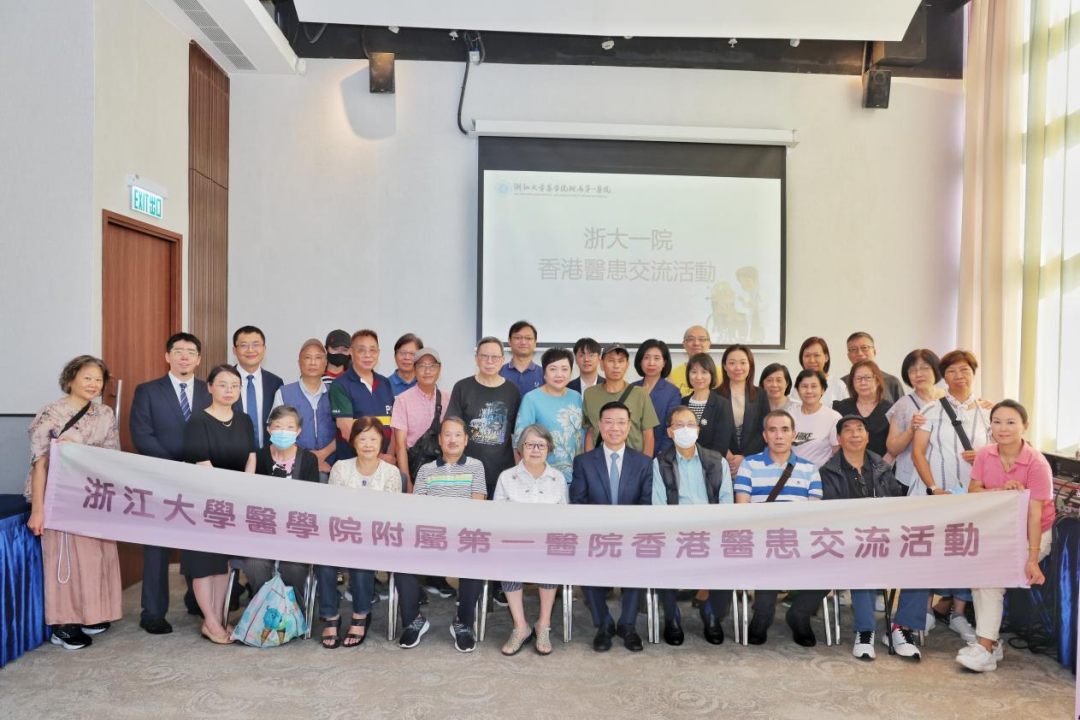
The event featured the participation of Deputy Director HU Yongxian, Head Nurse JIN Aiyun, along with Dr. YE Yishan and Dr. ZHAO Houli from the center at FAHZU. The team coordinated various activities designed to inform Hong Kong patients suffering from malignant hematological diseases. Prof. HUANG commenced the event by welcoming patients and their families, expressing joy at witnessing their recovery and reintegration into daily life. He credited these outcomes to the center's continuous research efforts in advanced medical technologies, particularly in cellular immunotherapy.
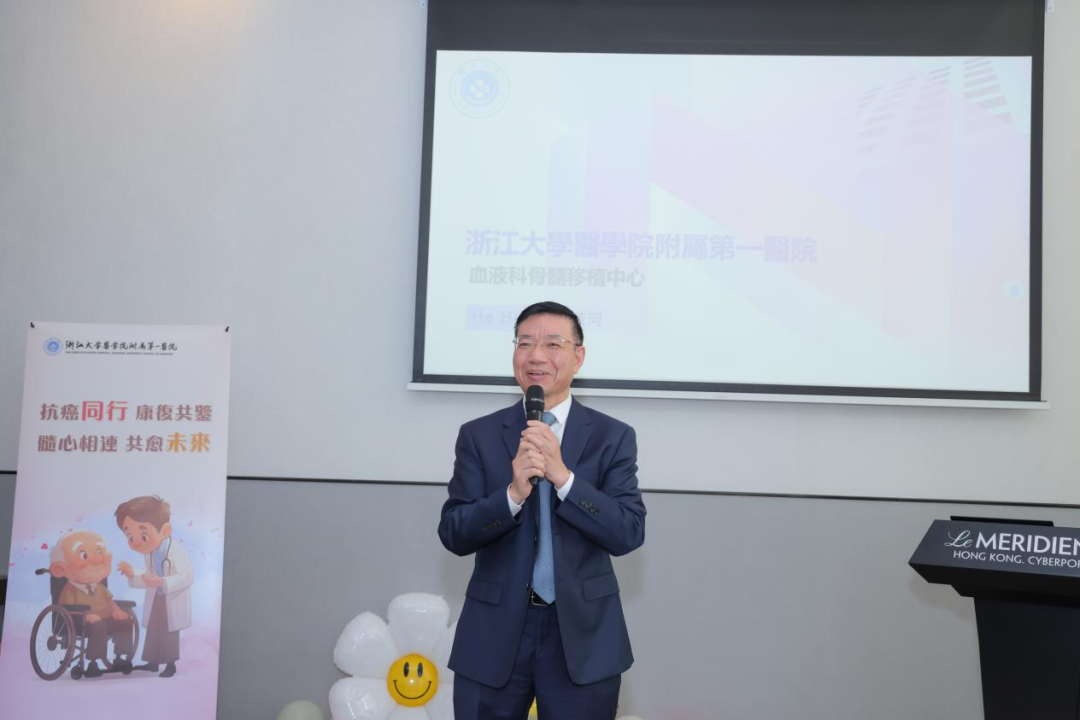
Prof. HUANG also provided an overview of FAHZU’s history and achievements, noting that the hospital, established in 1947, has built a strong reputation both locally and internationally for its comprehensive medical strength, rigorous quality standards, and distinctive specialties. FAHZU is an A-level National Medical Center with 7 campuses, more than 5,000 beds, employing over 10,000 staff. The Bone Marrow Transplantation Center, established in 1993, has performed over 4,000 hematopoietic stem cell transplants and has been recognized with two National Second Prizes for Progress in Science and Technology. Since 2014, the center has been at the forefront of CAR-T cell immunotherapy research for relapsed and refractory hematological malignancies, with over 500 clinical cases to date. The CAR-T cell therapy has shown significant efficacy in treating refractory and relapsed hematologic malignancies. The center has established a clinical application system for CAR-T therapy as a bridge to hematopoietic stem cell transplantation, which has reduced the relapse rate of refractory acute lymphoblastic leukemia to 17%. The recent "Hangzhou protocol" for CD7 CAR-T bridging transplantation has received international recognition, offering new hope to patients with refractory and relapsed acute myeloid leukemia, with results published in the New England Journal of Medicine. The team have also conducted clinical research on PD1-targeted CAR-T cell therapy, achieving an 87.5% complete remission rate in patients with refractory and relapsed lymphoma—one of the highest remission rates and lowest toxicity profiles globally, with findings published in Nature. Additionally, the center has carried out clinical research on novel CAR-T cell therapy targeting GPRC5D for multiple myeloma, achieving a 100% overall response rate, with results published in the Lancet Hematology.
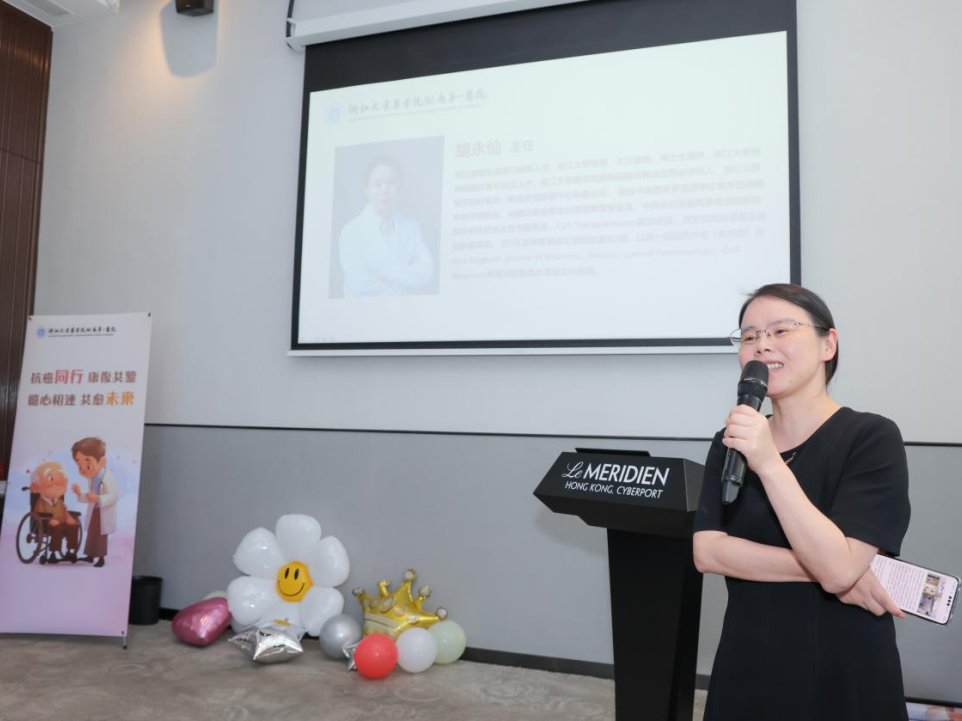
Prof. HU Yongxian emphasized the transformative potential of CAR-T cell therapy, illustrating its effectiveness through the success stories of patients who have achieved substantial remission. The therapy reportedly yields complete remission rates of 90% for difficult-to-treat acute lymphoblastic leukemia, 50% for B-cell lymphoma, and 70% for multiple myeloma, marking it as a significant breakthrough in medical science. She encouraged patients to actively engage with their healthcare teams and adhere to follow-up regimens. She also announced the upcoming publication of the book 100 Questions About CAR-T Cell Therapy, which aims to educate patients about this revolutionary treatment.
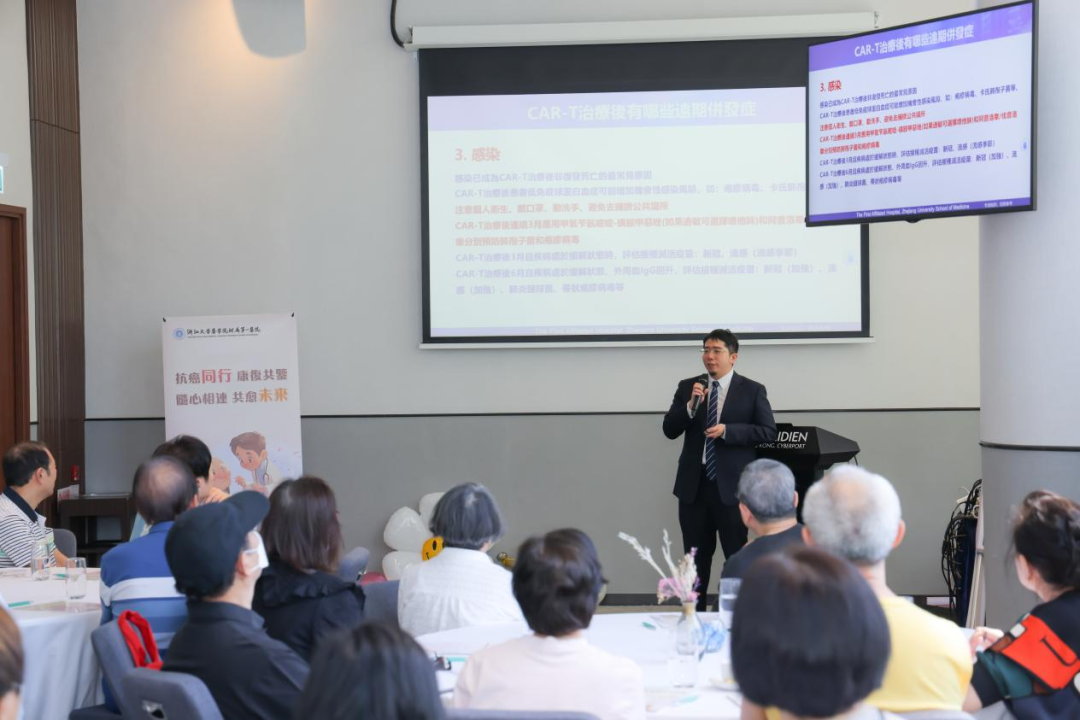
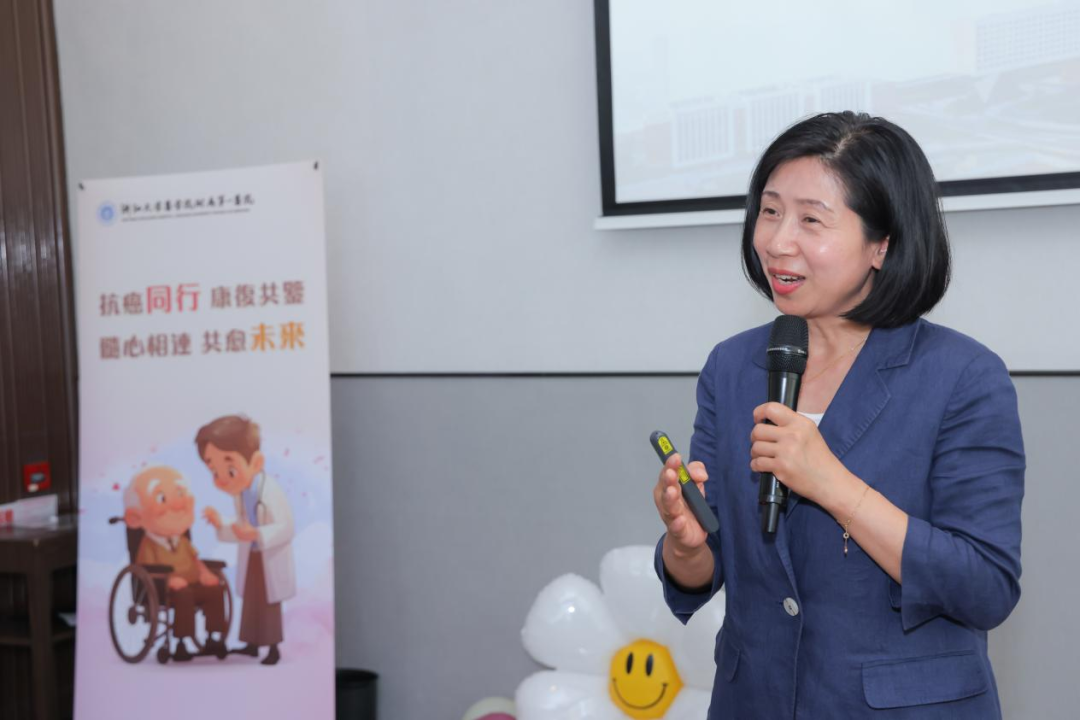
Dr. ZHAO Houli addressed common long-term complications associated with CAR-T therapy, such as delayed cytokine release syndrome (CRS) and other immunological concerns, stressing the importance of meticulous self-management and regular medical check-ups following treatment. JIN Aiyun, the head nurse, provided an engaging analogy, describing CAR-T cells as elite forces specifically trained to identify and eradicate malignant cells, which underscored the collaborative effort between patients and healthcare providers to achieve optimal therapeutic outcomes.
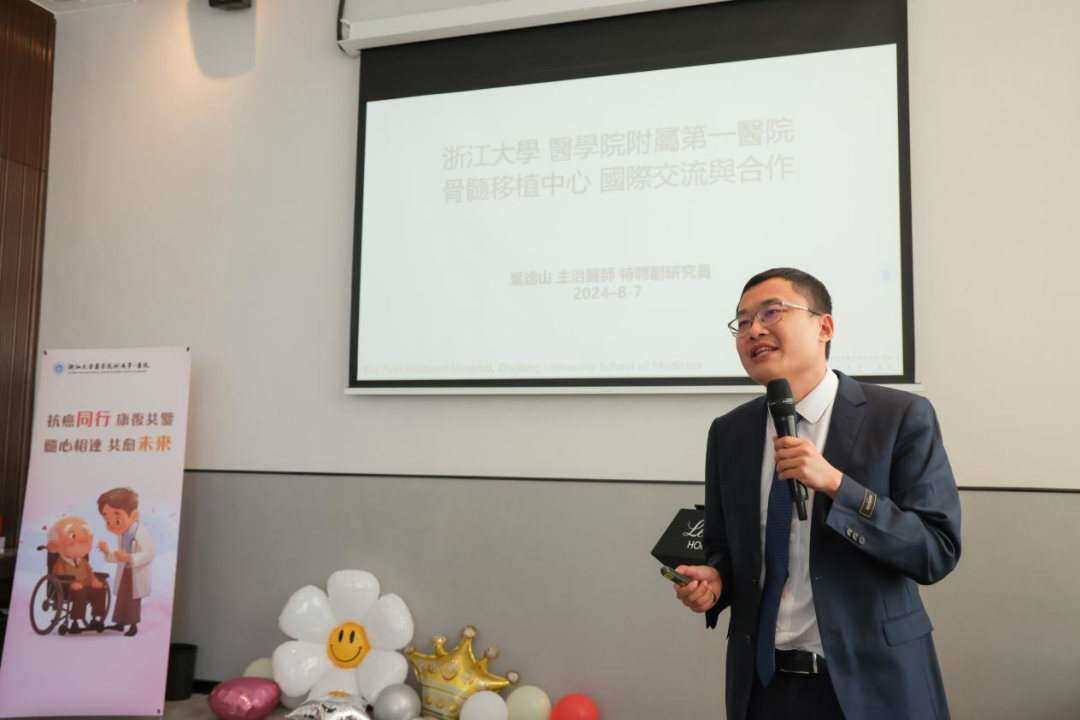
Dr. YE Yishan shared the center’s recent international collaborations, highlighting its leading role in global academic exchanges at international conferences and its partnership with top international experts. These collaborations have resulted in numerous high-impact publications and the formation of an international joint medical team, enhancing the center’s global reputation and providing cutting-edge treatment options for patients from home and abraod. The center has currently treated 42 patients from Hong Kong, Macau, and Taiwan, including 38 from Hong Kong and 17 international patients from Switzerland, Singapore, Malaysia, etc.
The event served as a platform for these patients to engage directly with clinical experts, alleviating their concerns and fears regarding their conditions and treatments. Attendees were invited to share their experiences and support one another, fostering a sense of community and resilience among those facing similar health challenges.
The success of the event highlights the center's dedication to not only advancing medical research and treatment methodologies but also to supporting patients through education and empowerment. Future exchanges are anticipated, aiming to broaden the reach of knowledge and compassion towards patients grappling with complex hematological conditions.
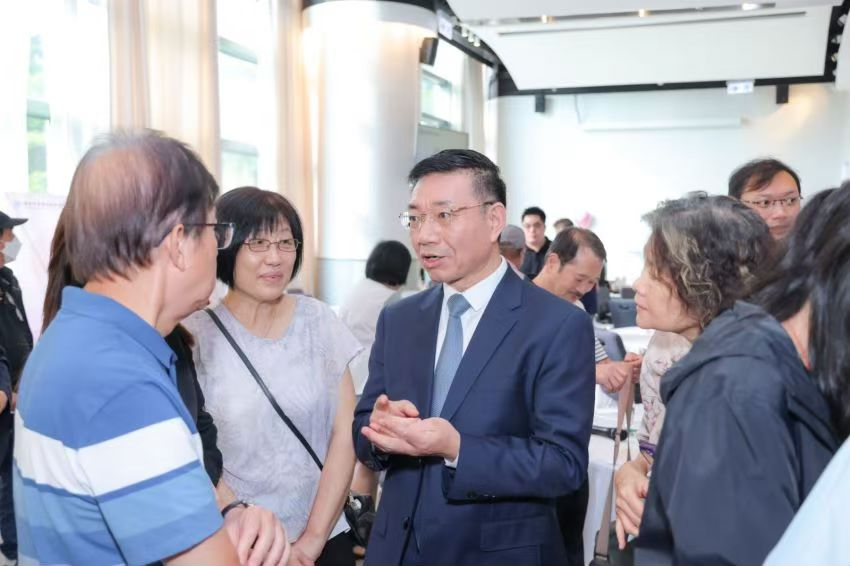
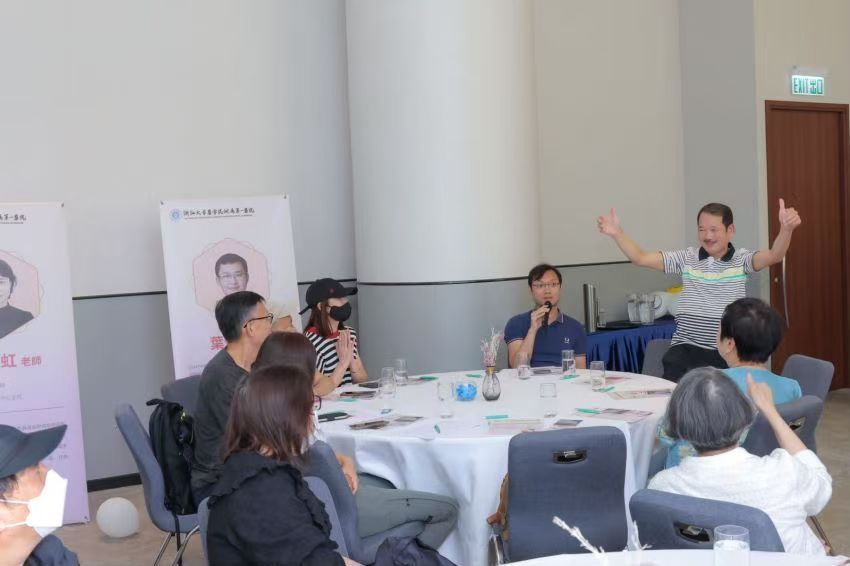
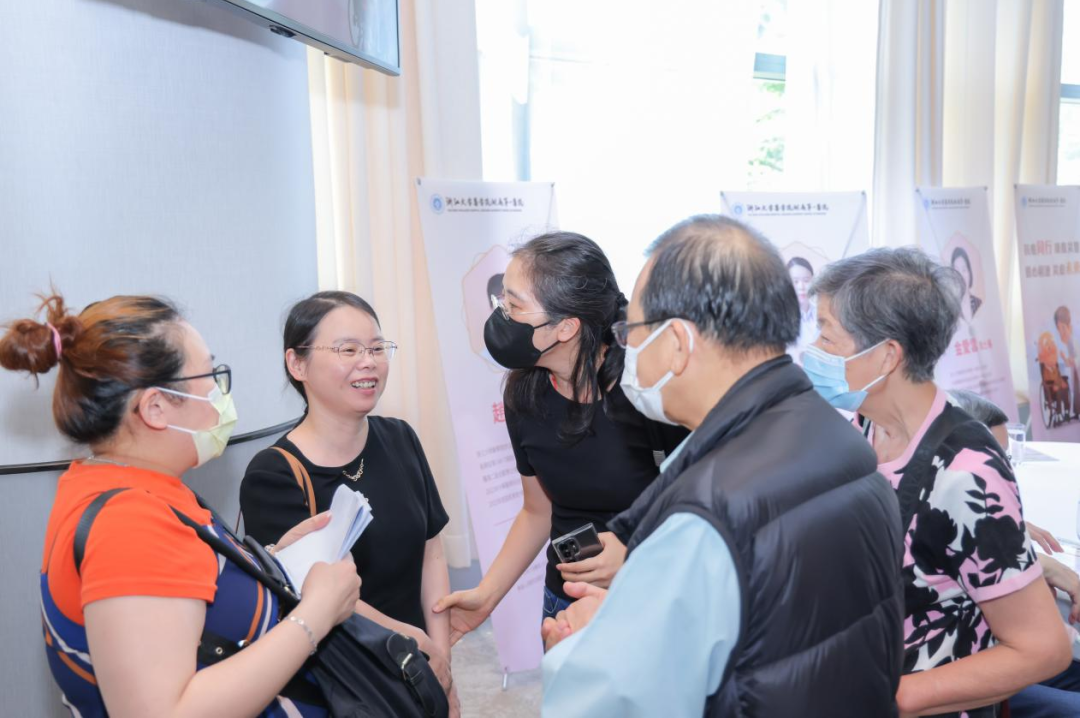
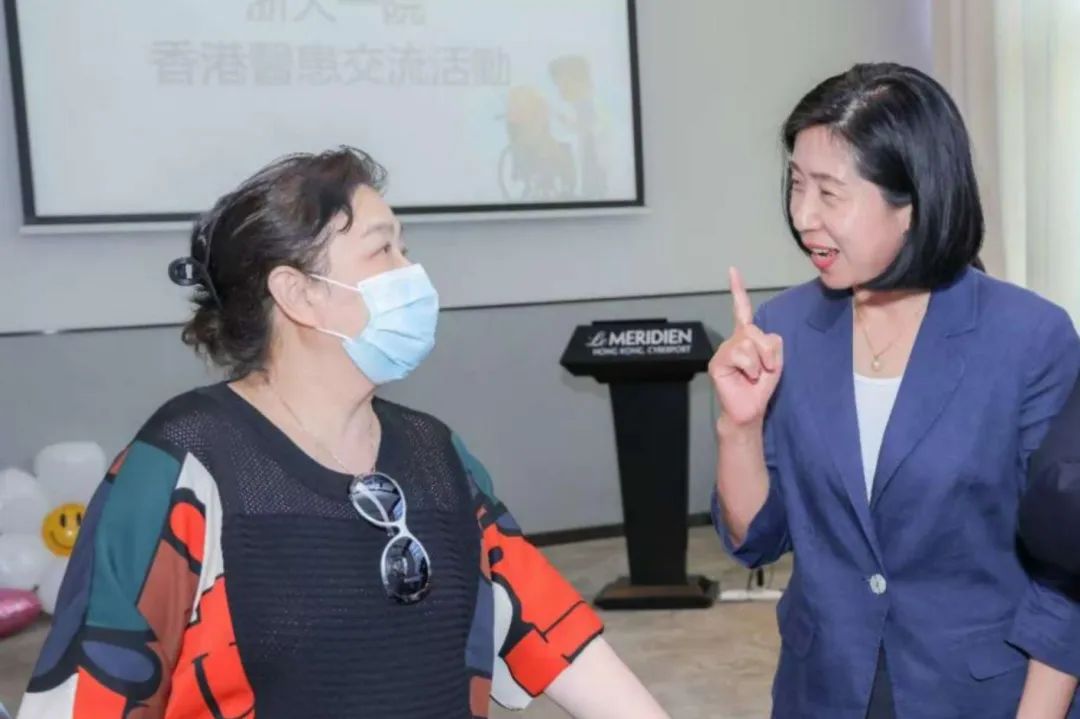
FAHZU’s Bone Marrow Transplantation Center is recognized as one of China’s pioneers in CAR-T cell therapy clinical research. Since its establishment, the center has continuously advanced the field by developing innovative CAR-T cell therapies and establishing new clinical application systems. These efforts have significantly improved treatment outcomes and quality of life for patients, while also providing psychological support and comprehensive recovery assistance, enabling patients to reintegrate into their families and society.
With its ongoing commitment to innovation in CAR-T cell therapy and cooperative patient care, FAHZU continues to lead in progressive hematological treatments and enhance the quality of life for patients worldwide .


